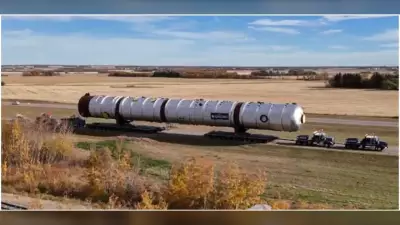
Canada's labour movement is sounding the alarm over what they call an "alarming precedent" set by the federal government's proposed changes to collective bargaining rules. Major union organizations including the Canadian Labour Congress and Public Service Alliance of Canada are mounting strong opposition to legislation they claim will fundamentally weaken workers' bargaining power.
What's Sparking the Union Outrage?
The controversy centres around Bill C-58, which would require employers and unions to agree on essential service levels before workers can secure a strike mandate. While the government frames this as maintaining critical services during labour disputes, unions see it as a direct attack on their fundamental right to strike.
"This legislation effectively eliminates the legal right to strike for federal public service workers," warned the Public Service Alliance of Canada in a strongly worded statement. Labour leaders argue the changes create an impossible Catch-22 situation where workers must negotiate the very terms that would limit their bargaining leverage.
The Government's Defence
Treasury Board President Anita Anand maintains the legislation aims to create "stability and certainty" for Canadians while protecting the right to collective bargaining. The government emphasizes that the bill only applies to federally regulated sectors like banking, telecommunications, and federal public service workers.
"We believe in free and fair collective bargaining," Anand stated during parliamentary discussions, "but we also have a responsibility to ensure that essential services are maintained."
Broader Implications for Labour Relations
Labour experts warn this move could signal a significant shift in Canada's approach to labour relations. The Canadian Labour Congress points to concerning parallels with provincial legislation that has faced constitutional challenges.
Several unions are already preparing legal challenges, arguing the legislation violates Charter protections for freedom of association. The outcome could set important precedents for how governments balance essential service maintenance with workers' fundamental rights.
As this debate intensifies, all eyes are on Parliament Hill where the legislation is currently making its way through the parliamentary process, with unions vowing to fight what they see as an erosion of hard-won workers' rights.






